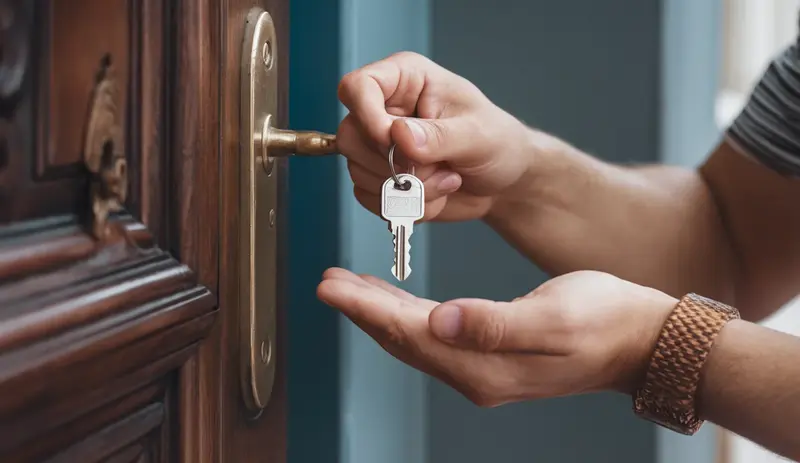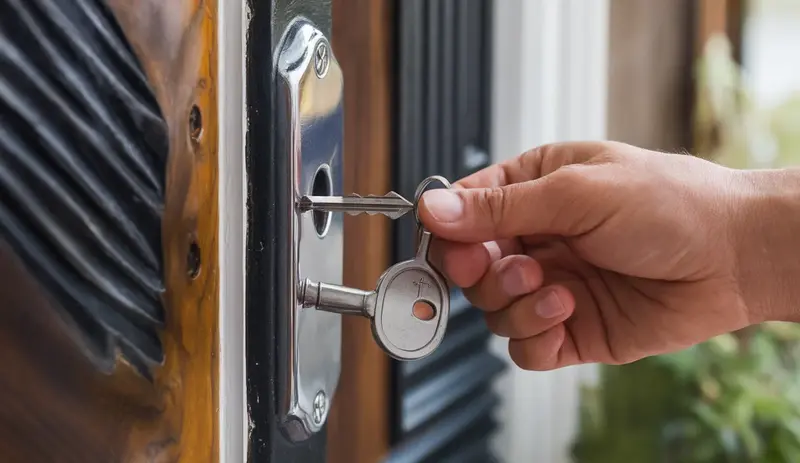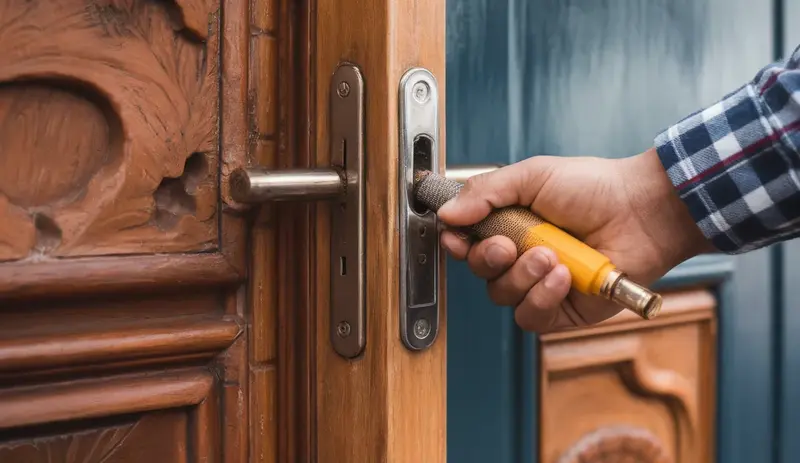You’re holding a complex-looking key that doesn’t seem like a typical house or car key. It’s got special markings, unique cuts, or looks more sophisticated than standard keys.
Maybe it’s for a high-end vehicle, a secure business facility, or a specialized lock system. You wonder, ‘Can a locksmith actually duplicate this?’
What Makes a Key “High-Security”?
When we say “high-security” we really mean a lock that tries hard to stop copying. Three things usually do that.
First, the blank (the plain key before it’s cut) isn’t sold at any big box store. It only comes from the maker, so strangers can’t just grab one off a shelf.
Second, the cuts aren’t the simple up and down teeth you see on a house key. They have odd angles, weird depths and tiny side cuts that a regular cutter can’t read.
Third, the metal itself is something tough like stainless or nickel titanium. It won’t wear down fast and you can’t file out the hidden bits easily.
Patents add extra tricks – side mils, special groove shapes – that only the maker’s own machines know how to read. All together they make the key act like a secret code nobody else can crack.
Can Professional Copying Actually Happen?
It’s not like grabbing a copy at the corner store in Greenwood Village, CO. The locksmith has to make sure they’re allowed. That means…
- A paper from the maker that says this key belongs to a certain lock system.
- Some ID that proves who is asking for the copy.
- Proof you own the original – receipt, asset list or something similar.
Often the maker even gives a code or a digital certificate that unlocks the copy process. If any of that is missing the locksmith will say “no” and walk away. This keeps the lock safe and keeps the law happy.
You may liked this: How Much Does It Cost to Install Master Key Systems?
What Gear Do Locksmiths Use?
The machines are pretty high tech. First an optical scanner snaps the whole shape of the key in tiny detail – fractions of a millimetre. The picture turns into data points which a CAD program builds into a 3D model.
Then a precise milling head cuts a new blank according to that model. If the cut is off by just one millimetre the new key might not work at all or it could even break the lock pins.
Because of that precision the equipment cost thousands of dollars. The tools are basically “keys to the kingdom” for any legit copy job – they let a pro make a legal duplicate while keeping it safe from accidental leaks.
When Should You NOT Try to Copy a High-Security Key?
There are several red flags:
- The key protects a high risk place – a government building, a data centre, a vault of cash or art. Making an unauthorized copy could void any warranty and break the law.
- You can’t show proof you own the key. Without a receipt or paperwork even the best locksmith will turn you down.
- Some modern keys have a chip or transponder inside that needs programming as well as cutting.
Trying to copy those without digital access is like printing a fake credit card – it just won’t work and you could get into serious trouble. If any of those sounds familiar, better call the original maker or ask the lock system supplier first.
How Much Does Professional High Security Key Copying Cost?
Money side varies with how fancy the key is:
- Pure mechanical high-security keys – expect $50 or $150 for one copy.
- Keys with a small chip or low frequency transponder – price climbs to $100 or $300 because they call someone to program it too.
- Auto keys that mix tricky cuts and encrypted chips – these can be $150, $500 or more.
A good tip: always ask for a written quote before work starts and check that the locksmith has the right certification from the key’s maker. That way you avoid surprise fees and know you’re dealing with someone legit from Doctor Lock, conveniently located near our Google Maps listing.
Conclusion
High-security keys aren’t just another piece of metal; they’re built with locked-away blanks, weird cut patterns and tough alloys to act like a mini Fort Knox for doors.
Only authorised locksmiths – people who show proof of ownership, have maker permission and own pricey precision tools – should make copies. Knowing when not to try (restricted sites, missing docs, chip-loaded keys) and having an idea of the cost helps you stay safe and keep your lock working right.
By following these rules you protect your own property and respect the idea that good security can’t simply be photocopied.
High-security key copying isn’t a DIY project. Professional locksmiths like Doctor Lock have the expertise, equipment, and legal knowledge to help you safely duplicate these specialized keys. Always consult professionals who understand the nuanced world of advanced key systems.



